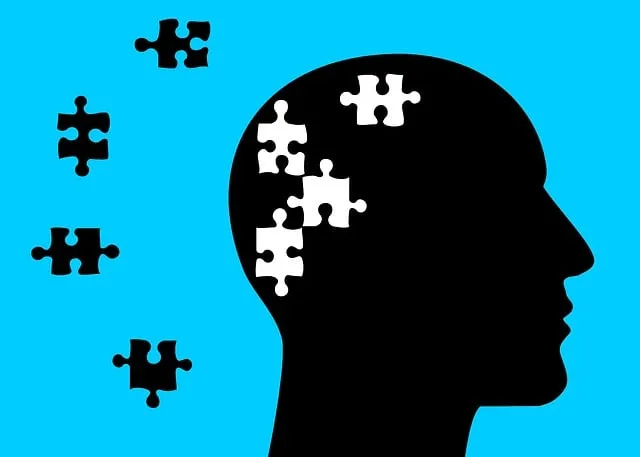The Kaiser Permanente mental health facility in Littleton is a leader in addressing the growing need for specialized mental wellness support through comprehensive Mental Health Education Programs. These programs teach stress management, coping mechanisms, and self-care routines, preventing more severe mental health issues and reducing healthcare system burden. Their holistic approach, incorporating diverse therapeutic methods and community outreach, has gained recognition. Effective mental wellness coaching should be rooted in robust program design, with coaches trained in various mental health conditions and evidence-based practices. The Littleton facility prioritizes personalized, inclusive support, tailoring interventions to individual needs, cultural backgrounds, and challenges. Success is evaluated through multi-faceted assessments, including symptom tracking, coping skills development, and regular coach check-ins for proactive risk management.
Mental wellness coaching programs have emerged as a vital tool in addressing the growing demand for accessible, personalized support. As organizations like Kaiser Permanente recognize, implementing comprehensive mental health initiatives, such as their successful model at the Littleton facility, is essential. This article explores the development of these programs, focusing on key components, strategies for inclusivity, and measurement techniques to ensure effectiveness. By examining real-world examples, we can uncover innovative approaches to enhancing mental wellness in diverse settings.
- Understanding the Need for Mental Wellness Coaching Programs
- Kaiser Permanente Mental Health Facility Littleton: A Model for Success
- Key Components of an Effective Coaching Program
- Strategies for Personalized and Inclusive Mental Health Support
- Measuring Impact: Evaluating the Effectiveness of Coaching Interventions
Understanding the Need for Mental Wellness Coaching Programs

In today’s fast-paced world, mental wellness is an increasingly vital aspect of overall health, and the demand for specialized support has never been higher. Facilities like Kaiser Permanente’s mental health facility in Littleton recognize this growing need among their communities. Stress Management is a key area where coaching programs can make a significant impact, helping individuals navigate the challenges of modern life and promoting resilience.
The development of well-structured Mental Health Education Programs Design offers a proactive approach to fostering better mental well-being. By educating individuals on recognizing stress triggers, building healthy coping mechanisms, and integrating Self-Care Routine Development practices into their daily lives, these programs empower people to take charge of their mental health. This proactive stance not only benefits individuals but also has the potential to reduce the burden on healthcare systems by preventing more severe mental health issues from developing.
Kaiser Permanente Mental Health Facility Littleton: A Model for Success

The Kaiser Permanente Mental Health Facility in Littleton has emerged as a beacon of hope and healing for many seeking mental wellness support. This facility stands out due to its holistic approach, integrating various therapeutic modalities and community-focused initiatives. One of their key success factors is the implementation of the Mind Over Matter principles, fostering a deep connection between mind and body in the recovery process.
Furthermore, their Community Outreach Program has been instrumental in expanding access to mental health services beyond traditional settings. This program targets underserved populations, offering workshops, support groups, and educational resources. Additionally, they have launched a Mental Wellness Podcast Series, providing valuable insights and personal narratives that resonate with listeners on their journeys towards mental wellness.
Key Components of an Effective Coaching Program

An effective mental wellness coaching program, such as those offered at Kaiser Permanente’s mental health facility in Littleton, should incorporate several key components to ensure success. First and foremost, a solid foundation of Mental Health Education Programs Design is essential. This involves equipping coaches with comprehensive knowledge about various mental health conditions, coping strategies, and evidence-based practices. A well-designed curriculum that includes topics like stress management, burnout prevention, and resilience building can empower both the coach and the client to navigate challenges effectively.
Additionally, fostering an environment of trust and support is vital for successful coaching. Coaches should be trained in active listening, empathetic communication, and creating a safe space for clients to openly discuss their struggles. Incorporating techniques for Coping Skills Development allows individuals to gain practical tools for managing stress, improving self-awareness, and enhancing overall mental wellness. Regular feedback mechanisms and ongoing professional development for coaches ensure the program remains dynamic and responsive to evolving needs within the mental health landscape.
Strategies for Personalized and Inclusive Mental Health Support

At the Kaiser Permanente mental health facility in Littleton, personalized and inclusive support is at the forefront of their approach to mental wellness coaching programs. To cater to diverse needs, the facility incorporates tailored interventions that consider individual preferences, cultural backgrounds, and unique challenges. This may include incorporating therapeutic techniques such as mindfulness meditation, which has been shown to reduce stress and anxiety, into sessions for a more holistic healing experience.
Effective communication strategies are another cornerstone of their inclusive model. Coaches are trained in active listening and empathetic expression to create safe spaces where clients feel understood and empowered. By fostering open dialogue, the facility aims to break down barriers and ensure that every individual receives support tailored to their specific emotional healing processes, regardless of their background or circumstances.
Measuring Impact: Evaluating the Effectiveness of Coaching Interventions

Evaluating the impact and effectiveness of mental wellness coaching programs is a crucial step in ensuring their success and positive outcomes. At the Kaiser Permanente mental health facility in Littleton, assessments go beyond mere satisfaction surveys. They employ a multi-faceted approach to gauge the tangible benefits experienced by clients. This includes measuring changes in symptoms, such as anxiety and depression levels, using standardized tools like the PHQ-9 (Patient Health Questionnaire). Additionally, they track improvements in coping skills development, an essential aspect of crisis intervention guidance.
The process involves regular check-ins with coaches to assess progress, identify areas for improvement, and adjust coaching strategies accordingly. This continuous evaluation ensures that interventions remain relevant and effective, addressing any emerging challenges. Furthermore, risk management planning for mental health professionals is integrated into the assessment framework, enabling proactive measures to mitigate potential risks and enhancing overall program effectiveness.
The development of mental wellness coaching programs, as highlighted by the success of Kaiser Permanente’s mental health facility in Littleton, is a transformative step towards addressing the growing need for personalized and inclusive mental health support. By integrating key components such as tailored interventions, evidence-based practices, and comprehensive evaluation, these programs can significantly enhance individuals’ well-being. Embracing strategies that foster diverse and accessible coaching models ensures that everyone has access to the resources they need to navigate their mental health journeys effectively. As we continue to innovate in this field, measuring impact through rigorous evaluations will guide us in refining these programs to better serve those seeking support.






